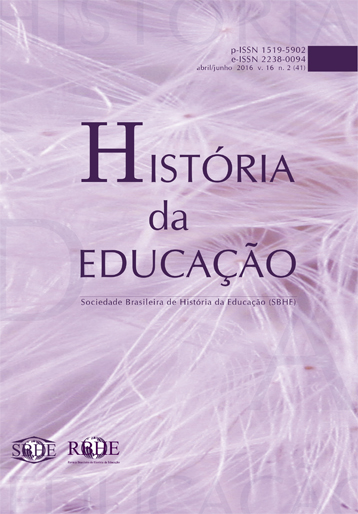Racionalização da oferta e estratégias de distinção social: relações entre escola, distribuição espacial e família no Oitocentos (Rio de Janeiro e São Paulo)
Resumo
O presente artigo possui como objetivo discutir os efeitos da distribuição das escolas, levando em consideração as tensões entre a racionalização estatística, a arte administrativa do Estado e os mecanismos de distinção e seleção constituídos pelos grupos sociais como formas de sobrevivência e promoção social. Focalizam-se três momentos da relação entre escola e cidade: o da instalação, o da manutenção e o da consolidação da escola em determinada região. Por meio de documentos relacionados a casos das cidades do Rio de Janeiro e de São Paulo no século XIX, observa-se que famílias e grupos sociais participam ativamente na seleção e na hierarquização da oferta, bem como na orientação da demanda por escolas públicas. Conclui-se, diante disso,que a localização geográfica de uma unidade escolar não é o único fator determinante da configuração do público que a frequenta.
Downloads
Os direitos autorais pertencem exclusivamente aos autores. Os direitos de licenciamento utilizados pelo periódico consistem na licença Creative Commons Attribution 4.0 (CC BY 4.0): são permitidos o acompartilhamento (cópia e distribuição do material em qualqer meio ou formato) e adaptação (remix, transformação e criação de material a partir do conteúdo assim licenciado) para quaisquer fins, inclusive comerciais.
Recomenda-se a leitura desse link para maiores informações sobre o tema: fornecimento de créditos e referências de forma correta, entre outros detalhes cruciais para uso adequado do material licenciado.













